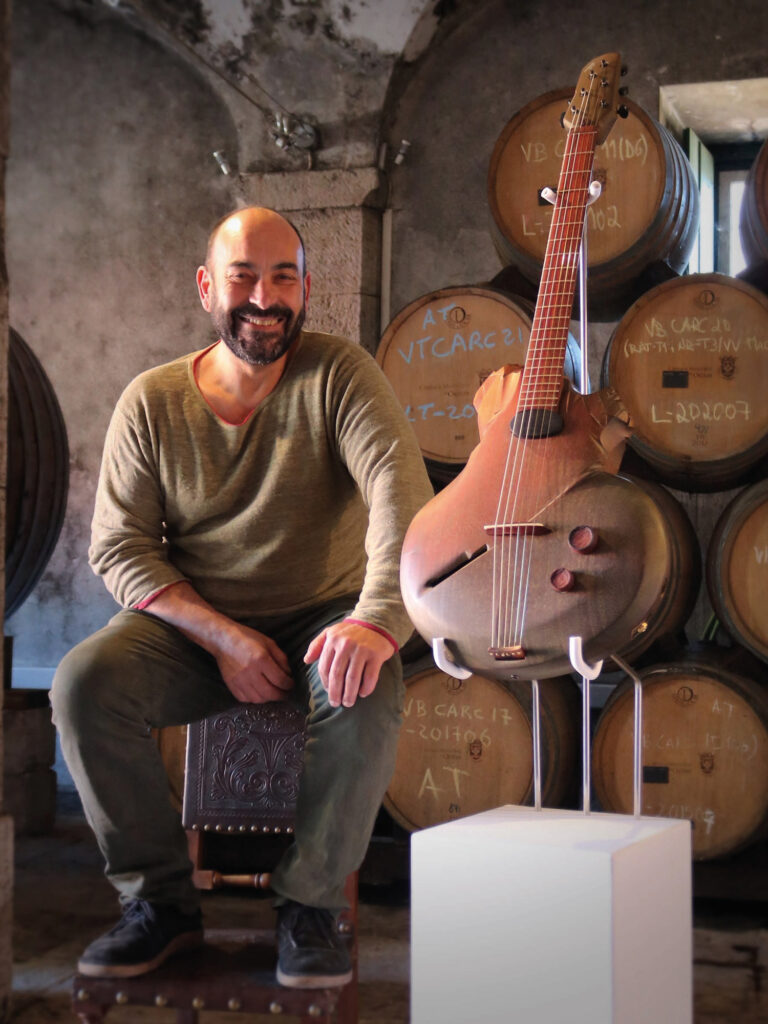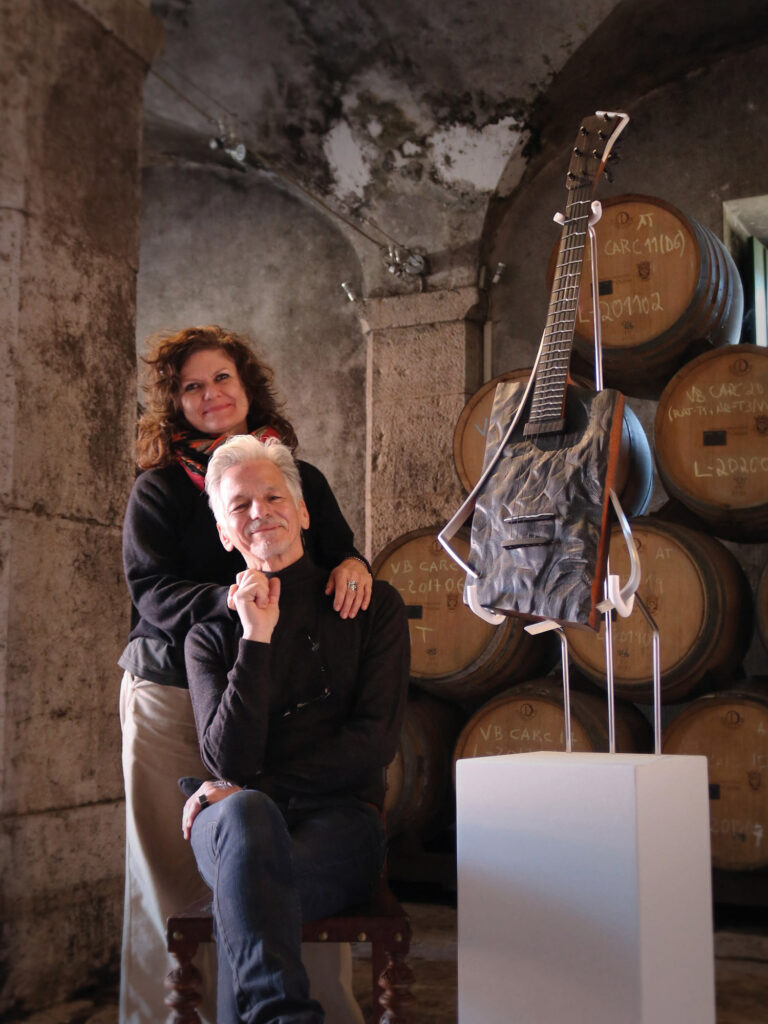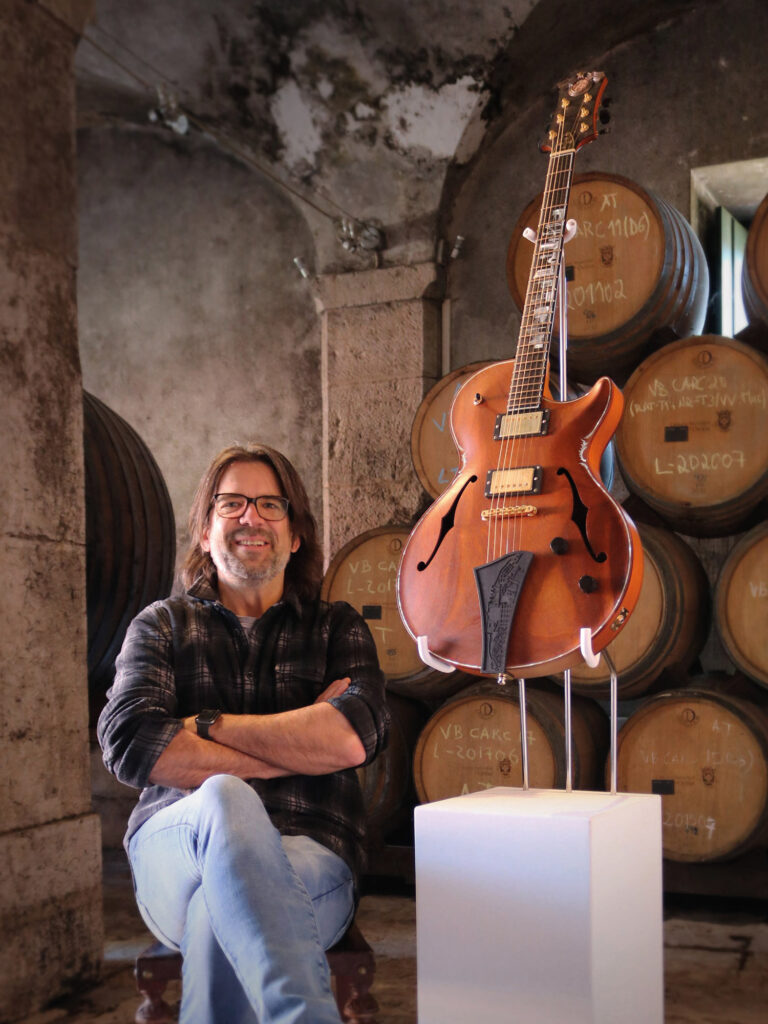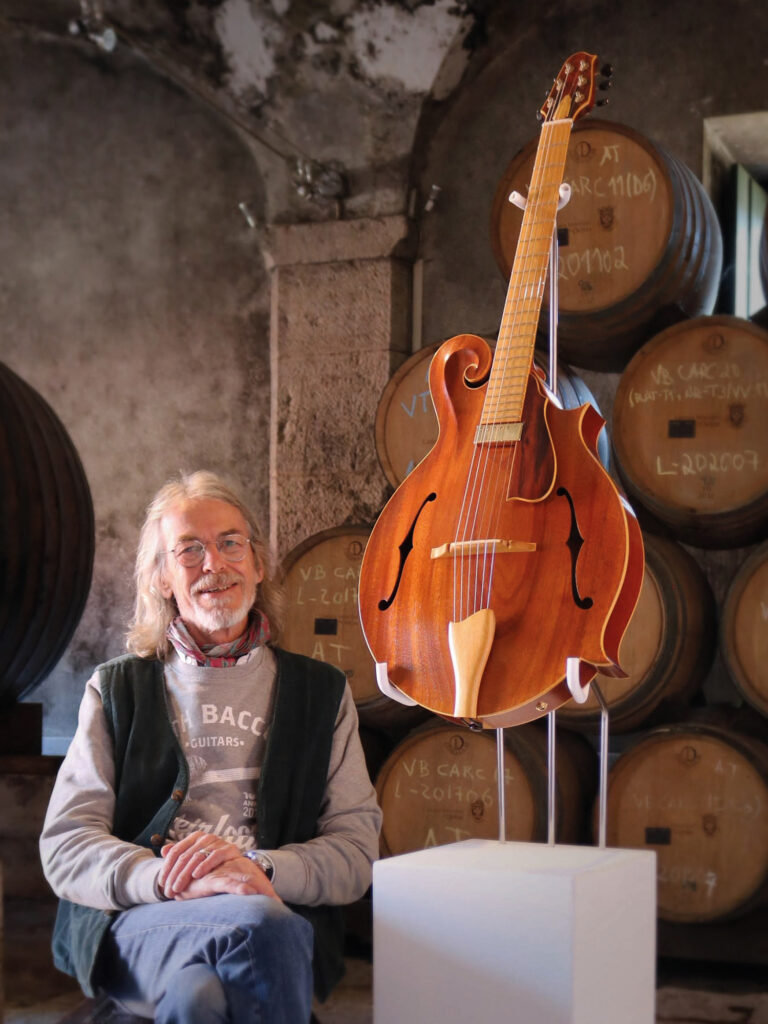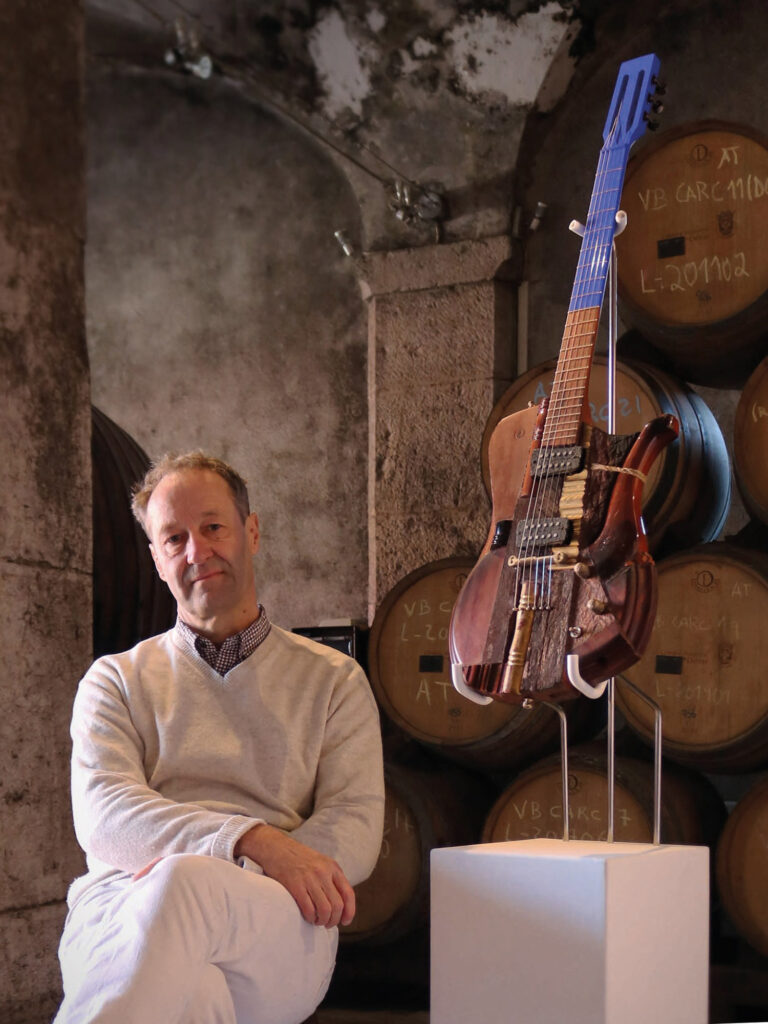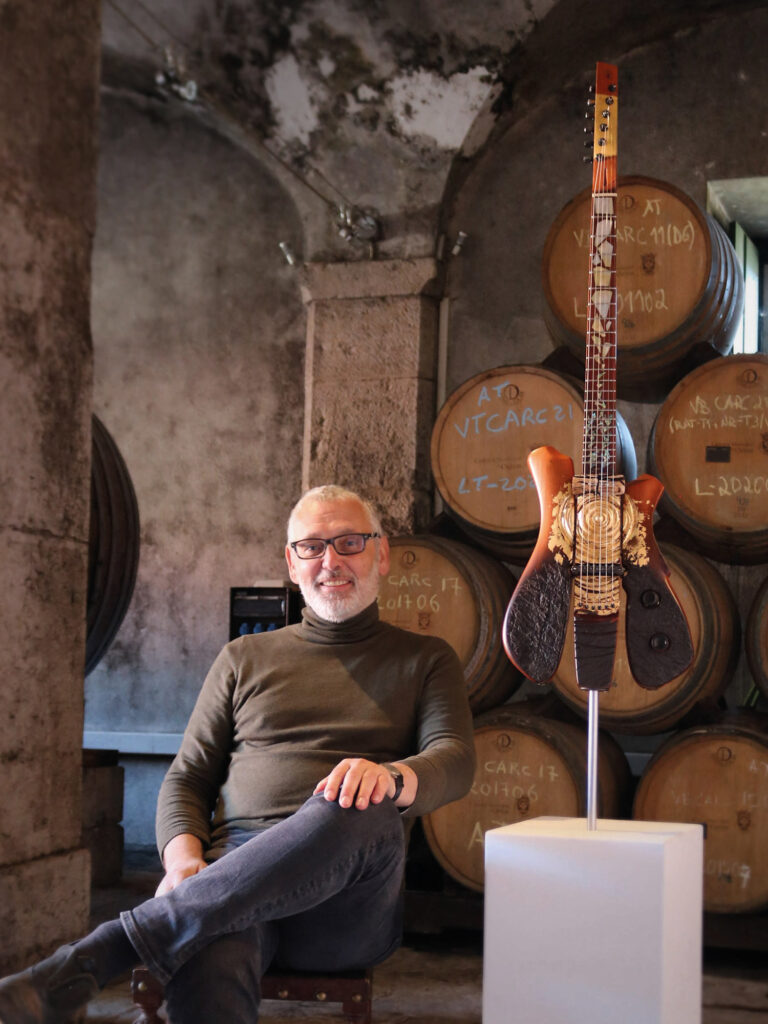Sometimes special circumstances bring together world-class artisans with a remarkable material and suddenly magic happens, sparking the creation of something truly outstanding. This was one of those moments!
It all started with what is the most magical of discoveries for a guitar maker: a bunch of old, interesting wood.
On his search for quality Mahogany wood for his guitars Portugese luthier Adriano Sergio discovered a pile of just that in the back of a warehouse. It turned out that the wood came from old wine barrels, stored in a disassembled state, dusty and still caked with the essence of the wine they had contained. But a few strokes with the hand planer revealed the rich hue of Mahogany beneath the grime – ripe for guitar making. Adriano told his friend and colleague Ulrich Teuffel about this discovery and the opportunity to purchase this wood. Researching the history of the barrels Adriano discovered that they had belonged to the estate of the Marquês de Pombal, a significant figure in the history of Lisbon.
«I quickly came to realize that this wasn‘t just great wood for guitars but a symbol of our history and a great opportunity to share it with others I greatly admire.»
Adriano Sergio, 2018
Inspired by the historical context of the wood Adriano and Ulrich had the idea of a project, which would honor the story of this wood by placing it in the hands of a group of select artisan luthiers, reviving it and giving it a new purpose and life.
Six select luthiers would apply their inspiration and craft to this unique 250+ years old Carcavelos Mahogany and create six unique guitars.
In 2018 Adriano Sérgio, Andy Manson, Claudio & Claudia Pagelli, Michael & Tania Spalt, Nik Huber, and Ulrich Teuffel, met in Lisbon to discover the wood for themselves and to share it among them. The guitars would be built in the secrecy of the luthiers’ workshops, not to be shown to each other until they would be completed. Thus, The Guitar Barrel Project was born. It grew even more when Alexandre Lisboa from Villa Oeiras, the winery that still continues to this date on the former estate of
the palace of the Marques de Pombal, contacted Adriano and expressed their desire to get involved in the project. Villa Oeiras received enough pieces to recreate two barrels to develop a very special wine.
The making of the guitars was documented by a film crew, who visited each luthier’s workshop during the building process and recorded unique footage and interviews.
LINK to THE GUITAR BARREL PROJECT
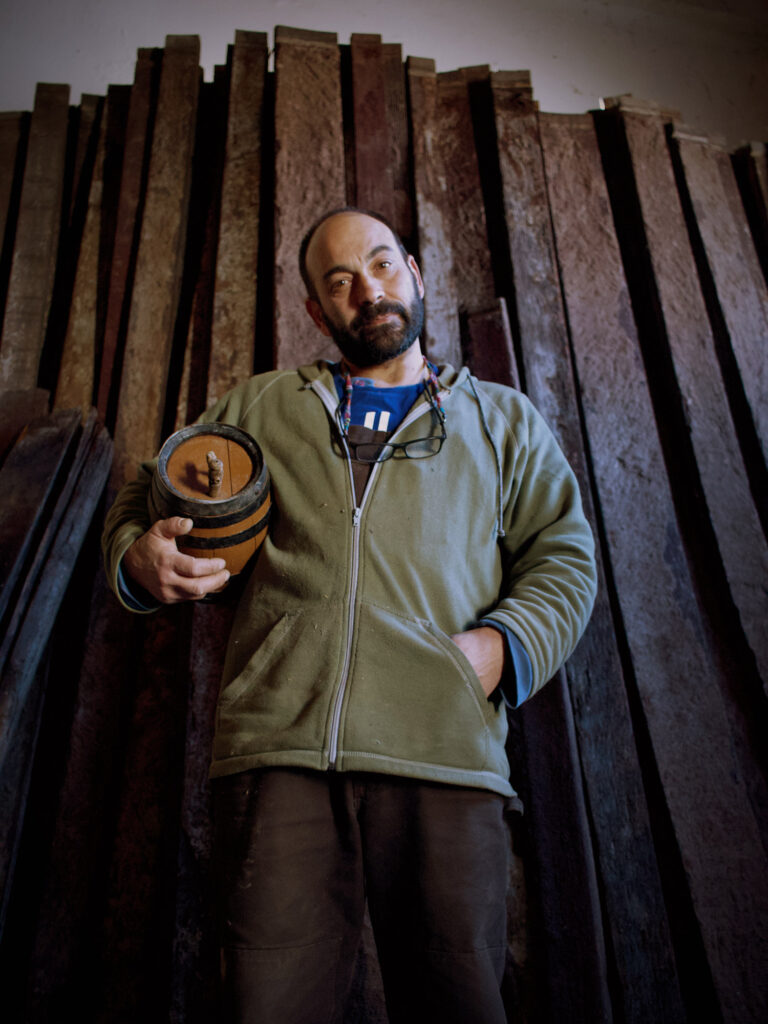
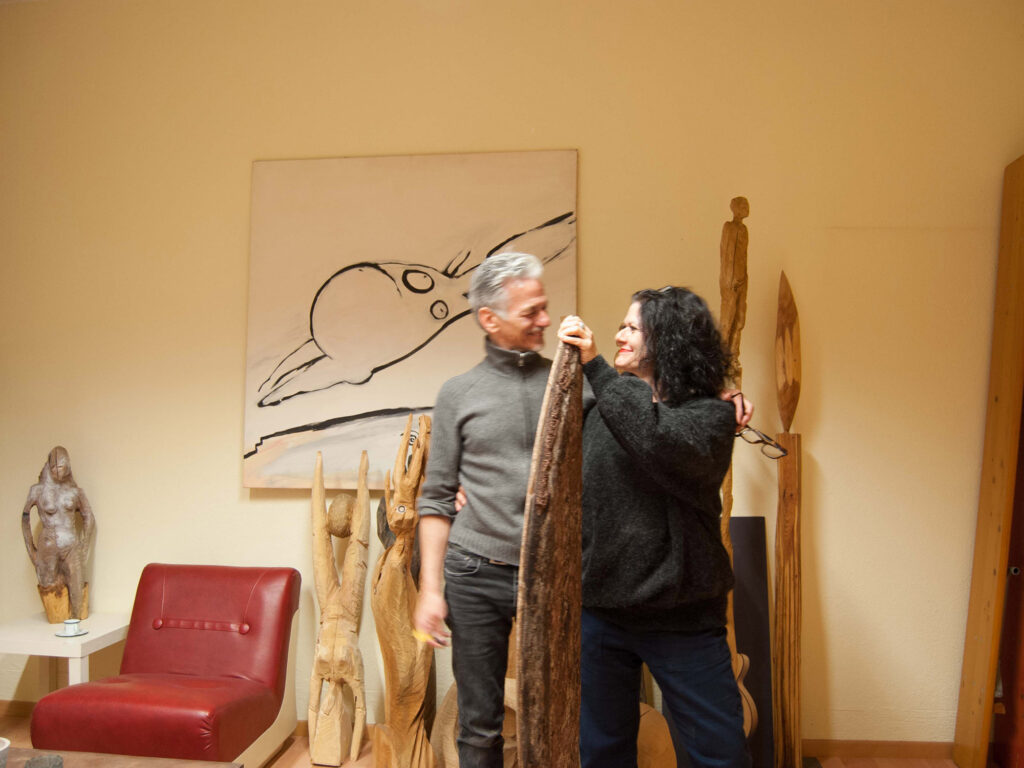
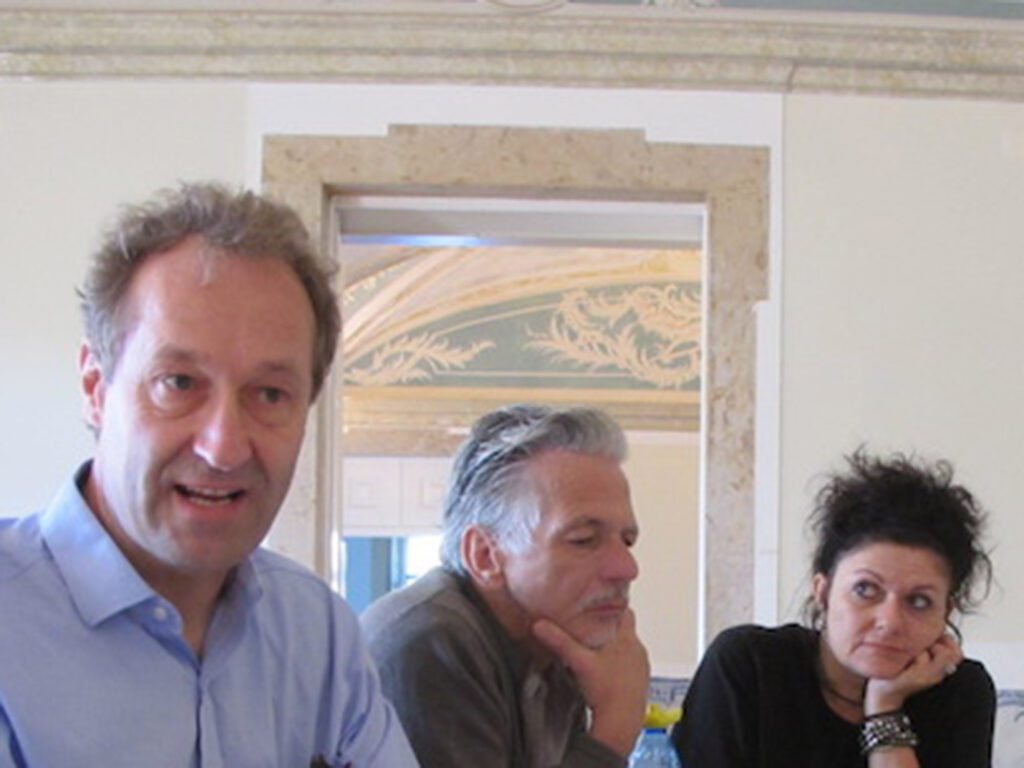
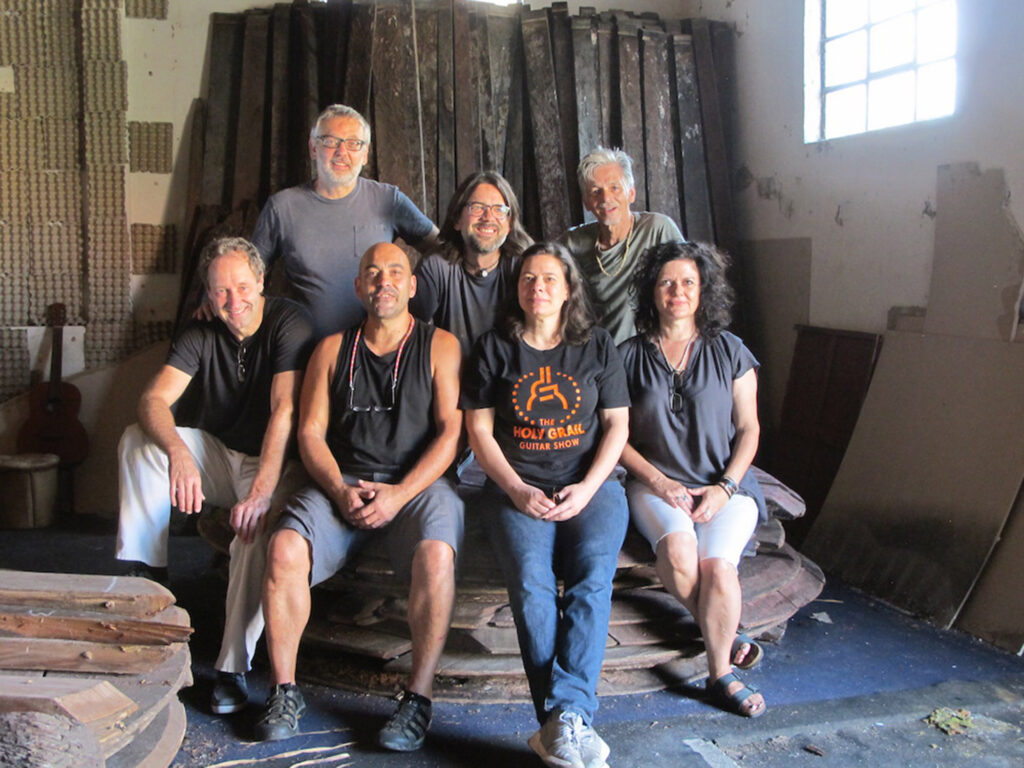
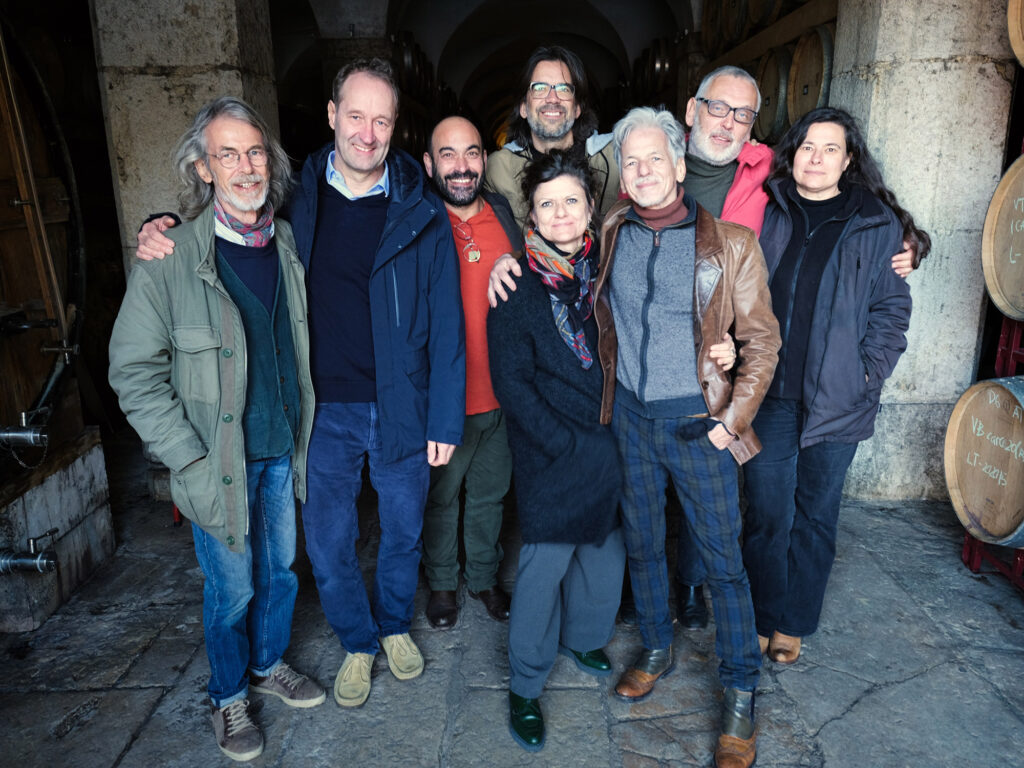
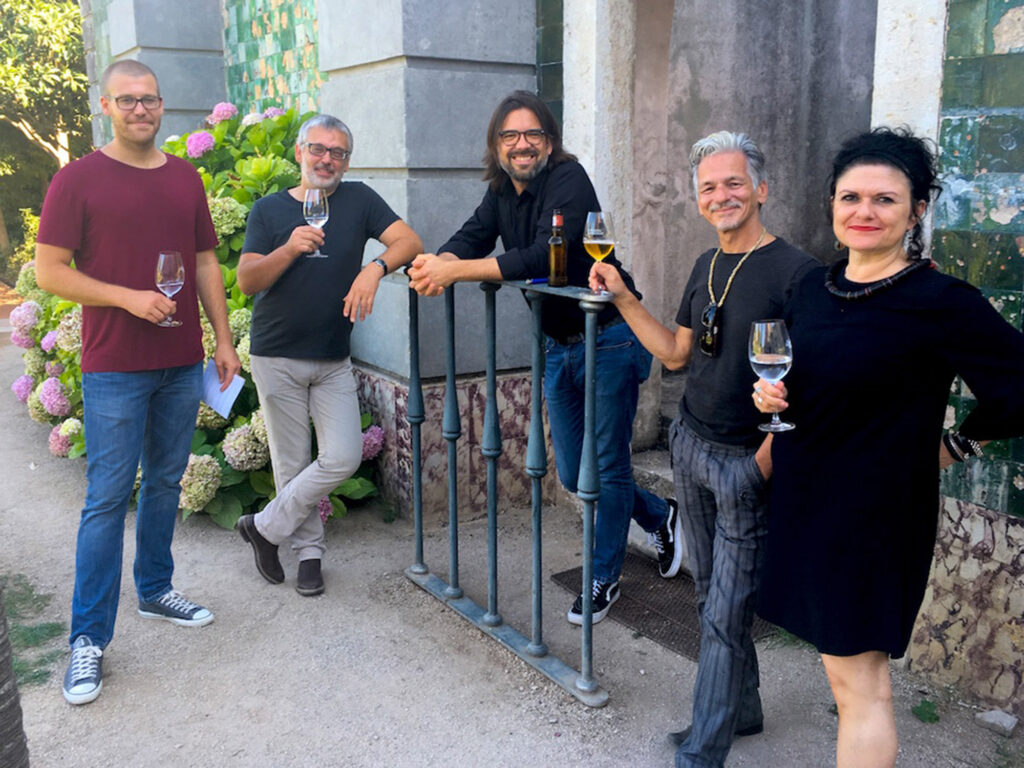
ALL SAINTS DAY NOVEMBER 1ST, 1755
On the morning of this fateful day almost all of Lisboa’s deeply religious population had congregated in the many churches to celebrate the high holy day, when a devastating earthquake struck a path of destruction through the city, levelling buildings and collapsing churches onto the masses of worshippers. The subsequent tsunami and a firestorm, sparked by the toppled candles of All Saints day, completed the destruction of what at the time was one of the richest cities and busiest trading ports in Europe.
The economic repercussions of this calamity were felt throughout the world, but even more so it impacted the current world views. Religious believers across Europe were quick to pronounce this as God‘s punishment for the lavish lifestyle of the people of Lisboa, but that failed to account for the survival of the gambling and prostitution centres of the city. How could a «good» God unleash such a terrible event and total devastation on especially Lisboa, the supremely pious center of orthodox catholicism, bastion of the church and the inquisition? Was it God‘s angry hand or simply a natural disaster that toppled cathedrals and monasteries, while sparing the brothels and other dens of sin?
A turning point in the intellectual history of the world, this event in its unexplainable magnitude undermined the foundations of church orthodoxy and the validity of absolutism. It cast doubt on the authority and rule of divinely anointed kings, and heralded the coming of the Age of Enlightenment, the triumph of scientific thinking and of political revolutions.
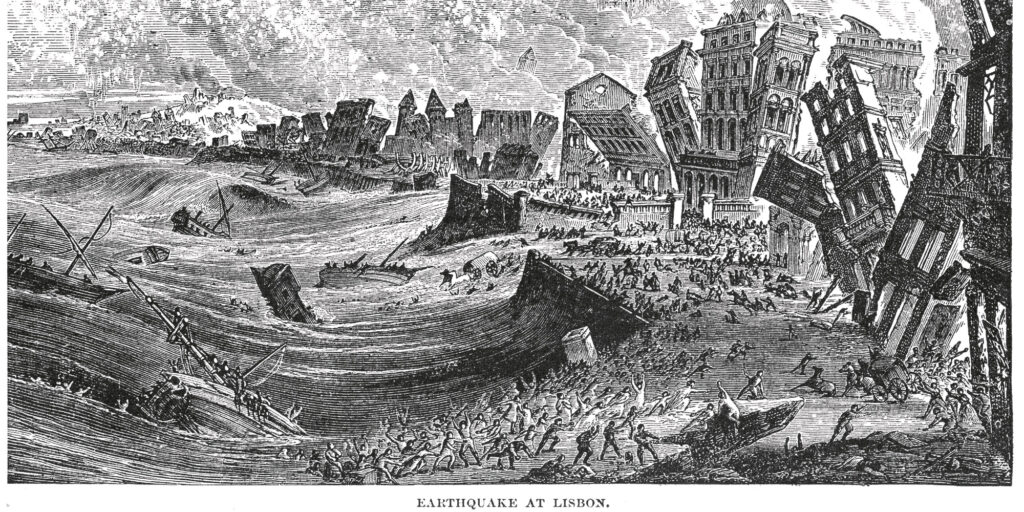
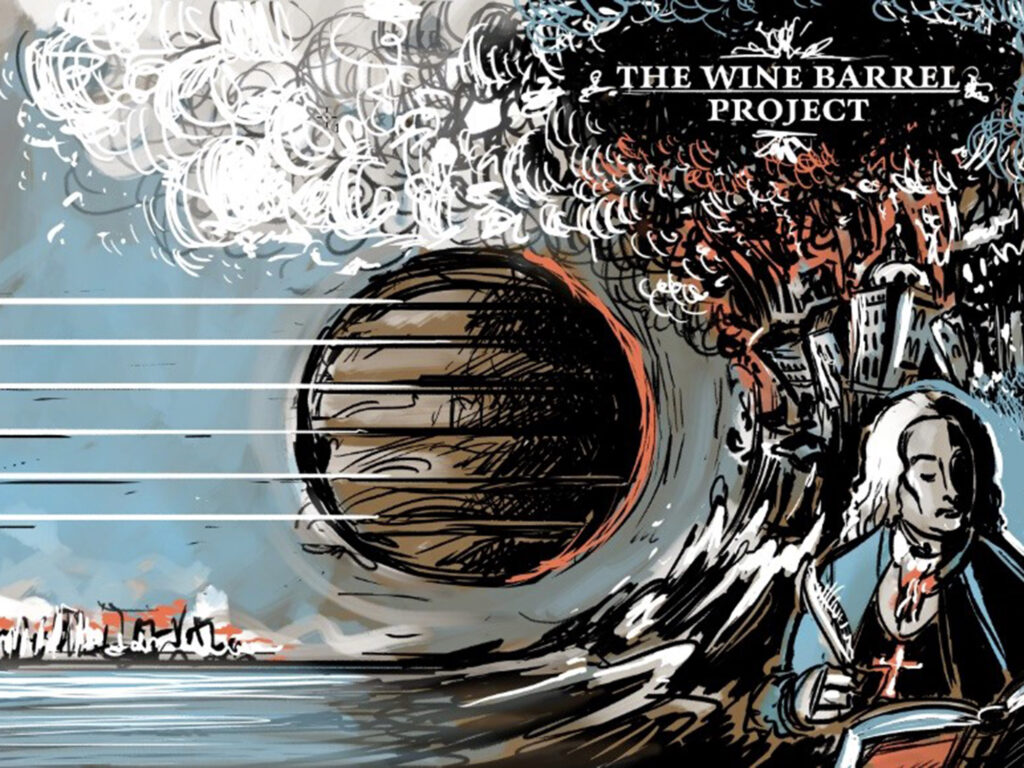
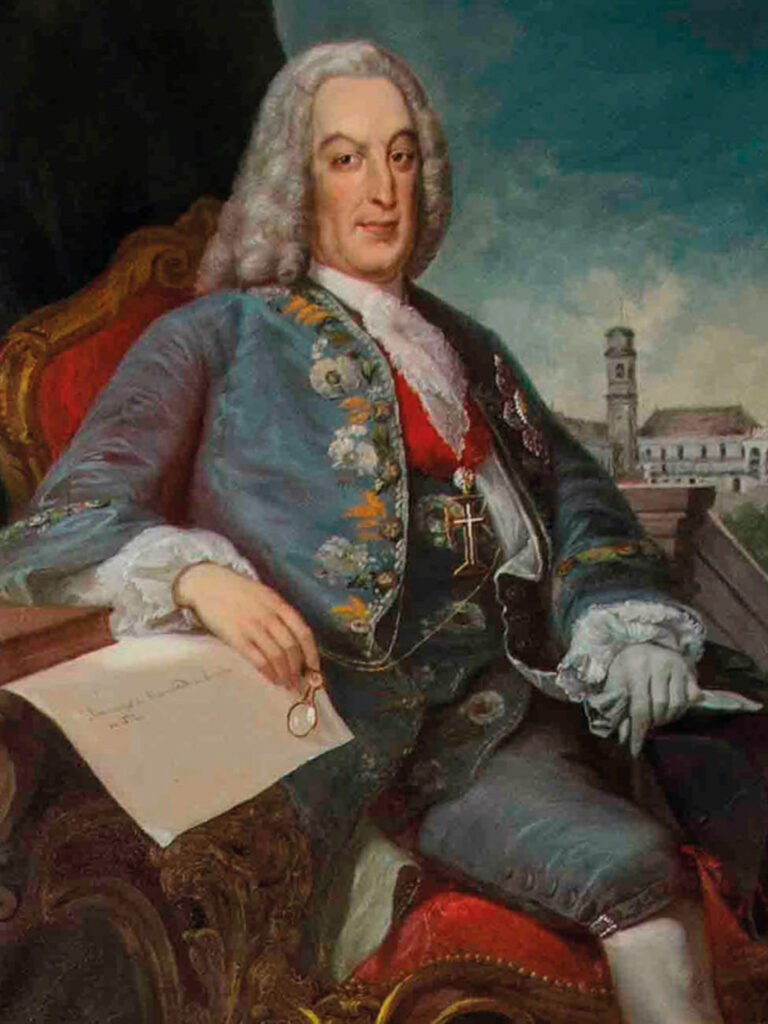
THE MARQUES DE POMBAL
Appointed by King D.Jose I to oversee the reconstruction of Lisboa after the devastating earthquake, the diplomat and politician Marques the Pombal eventually assumed quasi-dictatorial powers and reigned with the King‘s blessing, trying to bring Portugal out of the medieval ecclesiastical darkness and transform it into a modern state, weakening the hold of the Jesuits on the state.
Industrious, cunning and forward-thinking, Pombal amassed great power and wealth, which he invested heavily into wine production, growing the stature of Carcavelos Wine around the world. It was a favoured tipple of Thomas Jefferson, who kept a few bottles in his private cellar, and King D.Jose I of Portugal would give bottles as gifts to his most esteemed guests. In England, as the supply of French wine dried up during periods of war between the two countries, Carcavelos Wine become a favourite, alongside Port.
But Pombal’s influence went far beyond the world of wine. With this power, he did more than rebuild Lisbon and modernise the nation as a whole; the earthquake and the subsequent revolutionary changes in Lisbon and Portugal, largely overseen by Pombal and directed by his vision, are sometimes pointed to as kickstarting key developments in the Age of Enlightenment.
Banished from power upon the King‘s death by the King’s supremely pious widow, he has remained a somewhat controversial figure. Today, the rebuilt city of Lisboa remains a legacy of his vision.
